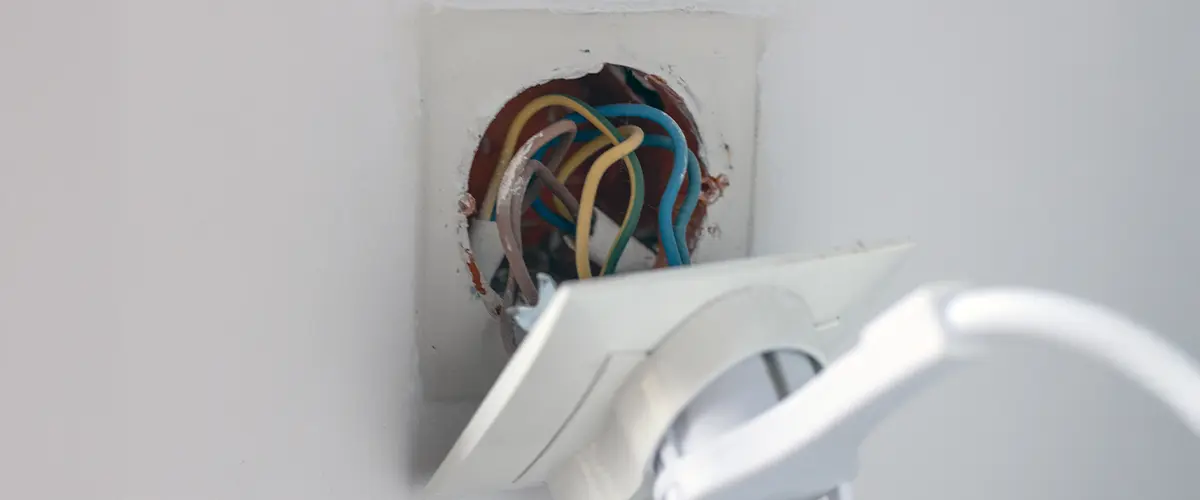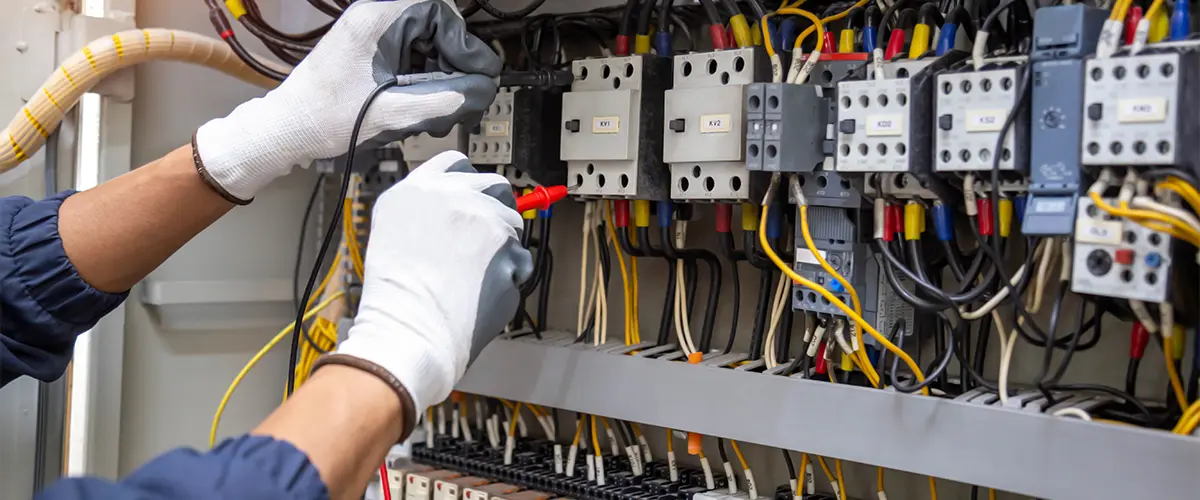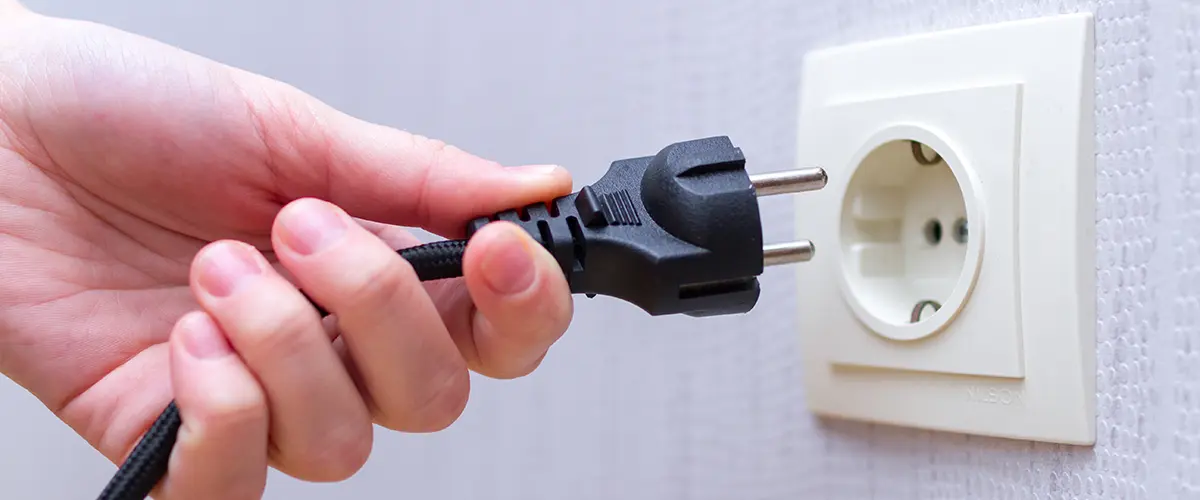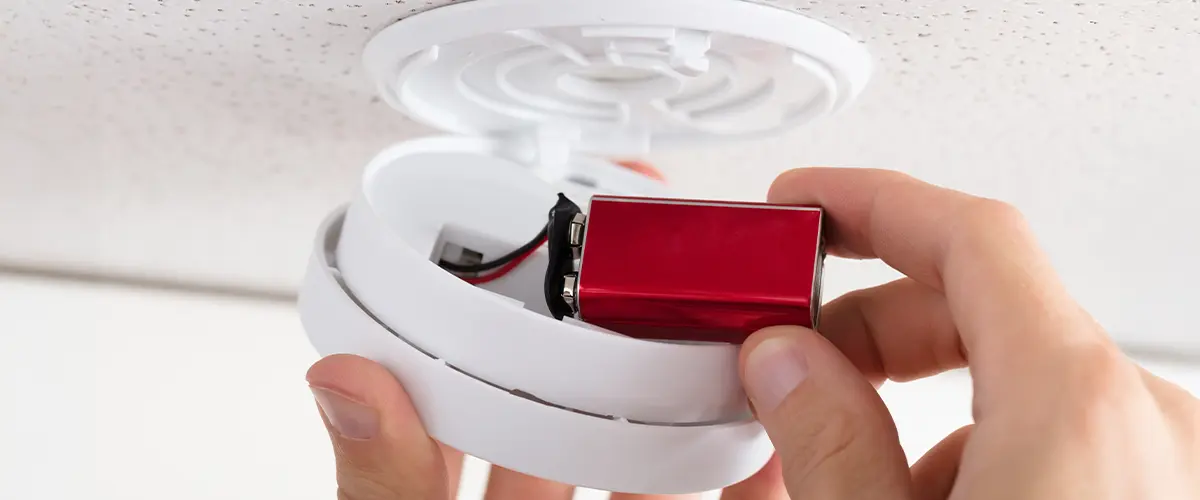Top 15 Hidden Electrical Issues Every Homeowner Should Know In 2024
Many homes face electrical issues often. One key fact is that electrical problems can lead to fires. This article will show the top 15 hidden electrical issues every homeowner should know in 2024 to help you keep your home safe.
Stay aware and prepared!

Key Takeaways
- Check your home for electrical issues like dead outlets and warm switches. These can lead to fires.
- If lights flicker or circuits overload, call an electrician. This stops bigger problems.
- Buzzing noises mean bad wiring or connections. Fix these fast to avoid shocks and fires.
- High energy bills could show hidden electrical troubles. Updating old systems helps save money.
- Regular safety checks keep your home safe from electrical dangers. Call pros when you see problems
Overview of Common Household Electrical Issues
Tripped Circuit Breakers
Tripped circuit breakers are a common sign that your home’s electrical system is overloaded. They act as safety devices to stop the flow of electricity when too much current passes through.
This can happen if you plug in too many devices into one circuit or if an appliance uses more power than the circuit can handle. A tripped breaker cuts off power to prevent damage or an electrical fire.
To maintain electrical safety, regularly check your breaker box for any signs of trouble.
If you notice frequent trips, it may indicate a deeper issue within your electrical panel that needs attention from a licensed electrician. Such problems could lead to unsafe conditions, including the risk of fire hazards or electrical shocks.
Identifying and fixing these issues early helps keep your home and gadgets safe.
Dead Outlets
Dead outlets happen when there is no power coming from an electrical outlet. It could be due to a tripped breaker, faulty wiring, or a problem with the outlet itself. To fix it, check your circuit breakers first.
A simple reset might solve the issue. If that doesn’t work, you may have loose connections or damaged wiring behind the wall. This needs attention from a certified electrician to prevent potential fire hazards and ensure your safety.

Flickering Lights
Moving from the issue of dead outlets, flickering lights also signal electrical problems. Flickering can happen because of loose light bulbs or faulty wiring. Sometimes, it means the lighting fixtures are not working right.
If many lights flicker at once, this might point to a bigger problem with your home’s electrical system.
Flickering often gets worse when other appliances use lots of power. This could mean your circuits are overloaded. It’s important to fix flickering lights to prevent bigger electrical hazards.
You might need to call a qualified electrician if changing the bulb doesn’t help. They can check for overheating wires or other serious issues that could lead to electrical fires.
Overloaded Circuits
Coming from flickering lights to overloaded circuits, it’s essential to understand that overloading your electrical system can lead to potential hazards in your home. Overloaded circuits happen when too many appliances are plugged into the same outlet, drawing more power than the circuit can handle.
This can result in overheating and potentially cause a fire. Make sure you distribute the use of high-energy-consuming devices evenly around your home to prevent overloading any one circuit.
Overloaded circuits pose a significant risk in homes; therefore, it’s crucial for homeowners to be mindful of their electricity usage and ensure they don’t exceed the capacity of their electrical system.
Warm Outlets or Switches
If you feel warm outlets or switches, it could indicate an electrical issue. This can happen due to loose wiring or overloaded circuits. Excess heat in these areas can lead to safety risks like fire hazards, so it’s crucial to address this promptly by consulting certified electricians for inspections and repairs.
Detecting warmth in outlets or switches should prompt homeowners to take action immediately as it could signal potential electrical dangers such as overheating and short circuits. Seeking professional assistance for a thorough inspection and necessary repairs is paramount in ensuring the safety of your home and preventing accidents related to faulty electrical systems.
Less Obvious Electrical Hazards
Buzzing Noises
Buzzing noises from electrical outlets or switches could indicate potential hazards. Loose wiring, overloaded circuits, or faulty connections often cause these sounds. Ignoring buzzing noises may lead to electric shocks, power surges, and even house fires.
It’s crucial to address these issues promptly. Regular inspection and seeking professional help can prevent accidents related to buzzing noises in the electrical system.
Key Points: electrical safety tips, unsafe electrical panels, regular inspection
Tripping GFCI or RCD Outlets
Tripping GFCI or RCD outlets can signal a potential ground fault, protecting you from electric shock. This could be caused by faulty appliances, damaged wiring, or moisture. It’s crucial to address any tripped outlets promptly, as they indicate a potential electrical hazard that needs attention.
GFCI and RCD outlets are designed to prevent electrical shocks in wet areas like bathrooms and kitchens. When these outlets trip repeatedly, it’s essential to have the underlying issue diagnosed by a qualified electrician for your safety and peace of mind.
High Energy Bills
High energy bills can be a sign of electrical issues in your home. If your electricity usage hasn’t changed but the bill has gone up, it could mean there’s an underlying problem. Faulty appliances, old wiring, and overloaded circuits are common culprits for high energy consumption.
Electrical systems that aren’t running efficiently can lead to unnecessary expenses. Regular safety checks and early detection of these problems can help prevent serious financial strain.
Older homes with outdated electrical systems are more prone to high energy bills due to inefficient power usage. Updating to modern, energy-efficient appliances and having a professional inspect your electrical wiring can save you money in the long run by reducing your monthly utility costs.
Keeping an eye on warning signs such as burning odors or warm outlets is crucial in catching potential issues before they escalate into significant problems.
Sparking or Arcing
Sparking or arcing in your electrical system is a serious issue. It can lead to fires and electric shock. If you notice sparks when plugging or unplugging appliances, or if you see an outlet sparking, it indicates a problem with the connection.
This can be caused by loose wiring or faulty outlets.
Arcing happens when electricity jumps between two points. It can happen inside your walls without you realizing it, potentially causing a fire hazard over time. To prevent this dangerous situation, have a qualified electrician inspect any sparking or arcing immediately to ensure your home’s safety.
Electric Shocks
Electric shocks are serious and can be caused by faulty wiring or damaged appliances. If you encounter a mild shock from an appliance, cease using it immediately and have it examined by a professional.
Electric shocks can result from old or frayed cords, which need to be replaced with grounded cords to prevent this hazard. It’s essential to regularly inspect the condition of your electrical appliances and power cords, particularly in areas where they’re frequently used – like kitchens and entertainment centers.
Keep in mind to check for any visible damage, such as cracks, splits, or exposed wires in the cord insulation. Always ensure that all your electrical needs are serviced by qualified professionals for inspection or repairs when necessary.

Hidden Dangers in Your Electrical System
Aluminum Wiring
Aluminum wiring was commonly used in homes during the 1960s and 1970s due to its lower cost compared to copper. However, aluminum is more prone to overheating, which can lead to electrical hazards like fires.
Over time, aluminum connections can loosen, causing overheating at outlets and switches. This may increase the risk of sparking or arcing, potentially resulting in electrical failures or even fires if not addressed promptly.
Homes with aluminum wiring should be inspected by a qualified electrician regularly for signs of wear and tear. Homeowners should consider replacing devices such as outlets and switches with those specifically designed for use with aluminum wiring.
These devices are constructed with materials that reduce the risk of oxidation forming between the aluminum wire connections, ensuring safer electrical systems in homes utilizing this type of wiring.
Ungrounded Shocks
Moving on from aluminum wiring to ungrounded shocks, it’s crucial to understand this hidden danger. Ungrounded outlets can lead to electric shocks, which pose a serious risk in homes.
When an appliance malfunctions or there’s a short circuit, the excess electricity flows through the body when touching an ungrounded outlet – resulting in electric shock incidents.
Ungrounded outlets are prevalent in older homes where they lack the third prong receptacle for grounding. This can also be found with two-prong extension cords and power strips often used with modern electronics like computers and TVs.
The key takeaway here is that using devices without proper grounding increases the risk of electrical shock incidents.
Loose Connections
Moving from ungrounded shocks to loose connections, it’s crucial for homeowners to recognize the dangers associated with loose wiring. Loose electrical connections can lead to overheating and even fires.
When wires are not firmly connected, they generate resistance which results in heat buildup at connection points.
This presents a serious fire hazard within residential properties. It’s important to ensure that all electrical connections are secure and properly maintained to prevent potential disasters such as house fires caused by loose connections.
Faulty Smoke Detectors
Faulty smoke detectors can be a serious hazard in any home. They might fail to detect smoke or fire, putting your family’s safety at risk. Regularly test your smoke detectors and replace the batteries every six months to ensure they function properly.
If your smoke detector is over 10 years old, it’s time for a replacement as older models may not work effectively anymore due to wear and tear. Make sure that you have enough of them installed throughout your home, and consider interconnected ones for maximum protection.
Smoke detectors should be treated as an essential part of your home’s safety features, providing early warnings during a fire emergency while you keep up with other electrical issues around the house.
Don’t overlook this critical component of safety when maintaining your home’s electrical system.
Incorrectly Wired Plug Sockets
Faulty smoke detectors are one concern, but incorrectly wired plug sockets can also pose serious risks. Poor wiring can lead to overheating, electrical fires, and potential electrocution.
It’s essential that all plug sockets are correctly wired by a professional electrician using appropriate materials and techniques to prevent hazardous situations in your home.
Loose connections or improper grounding may also result from incorrectly wired plug sockets, increasing the likelihood of short circuits and other dangerous incidents. Homeowners should regularly inspect their plug sockets for any signs of damage or faulty wiring to ensure the safety of their homes and families.
Preventative Measures and Safety Tips
Regular Safety Checks
Regular safety checks are essential to maintaining your home’s electrical system. Begin by inspecting power lines and fuse boxes for any indications of damage or wear. Test ground fault circuit interrupter (GFCI) outlets monthly to verify they’re operating correctly, and remember to use surge protectors for added safety.
It’s prudent to periodically examine wall outlets for loose connections or signs of overheating, as these can pose fire risks. Moreover, consider enlisting a professional electrician for an annual inspection to address any concealed issues before they escalate.
Keep in mind that routine safety checks not only prevent electrical malfunctions but also safeguard the welfare of your household. These uncomplicated measures can shield you against potential hazards and spare you from expensive repairs in the future.
When to Call a Professional
If you notice flickering lights, warm outlets, or buzzing sounds in your home electrical system, it’s crucial to seek professional assistance. These signs often indicate underlying issues that require immediate attention from a qualified electrician.
Moreover, if you have aluminum wiring or ungrounded shocks in your house, it’s wise to consult an expert to address these potentially unsafe situations promptly and effectively.
Moreover, when dealing with faulty smoke detectors or incorrectly wired plug sockets, it is best to seek the expertise of a professional electrician rather than attempting DIY fixes.
These issues can compromise the safety of your home and family. In cases where GFCI outlets keep tripping or there are frequent instances of sparking or arcing, it’s essential to involve a licensed electrician for thorough inspections and necessary repairs.

Leading Manufacturers in Electrical Safety
- Leviton: Renowned for their innovative and reliable electrical products, Leviton offers a comprehensive range of solutions for modern homes.
- Eaton: Eaton specializes in power management solutions, providing high-quality products focused on safety and energy efficiency.
- Schneider Electric: Schneider Electric is a global leader, known for its advanced electrical distribution and automation solutions enhancing home safety.
- Siemens: Siemens offers cutting-edge electrical products and systems, emphasizing sustainability and technological advancements in electrical safety.
- Hubbell: Hubbell is committed to delivering safe and efficient wiring devices and connectors trusted by professionals worldwide.
Top 15 Hidden Electrical Issues Every Homeowner Should Know in 2024 - FAQs
Trust Our Experienced Professionals
Our team has been providing exemplary electrical services for years. As seasoned professionals, we ensure top-tier results, ultimately saving you money.
Do you need an emergency electrician in Coopersburg, PA? Contact us at (610) 214-2179.
